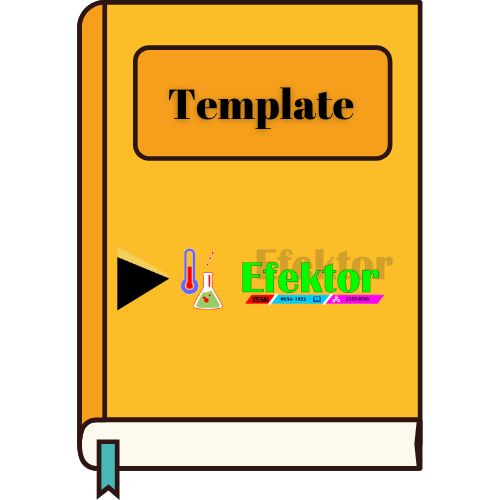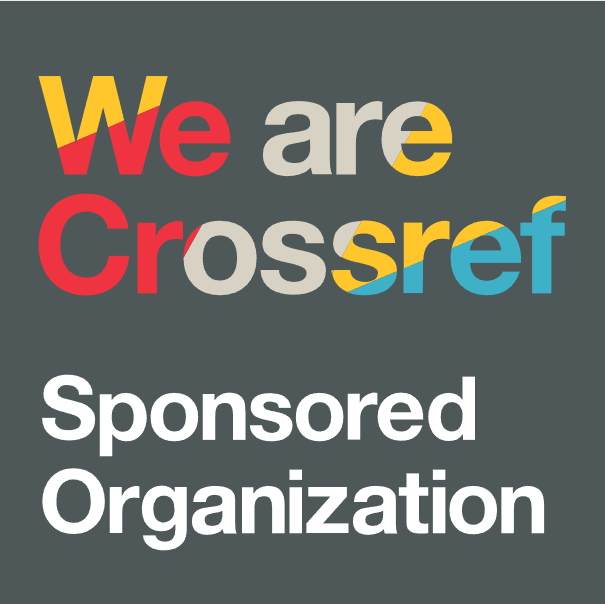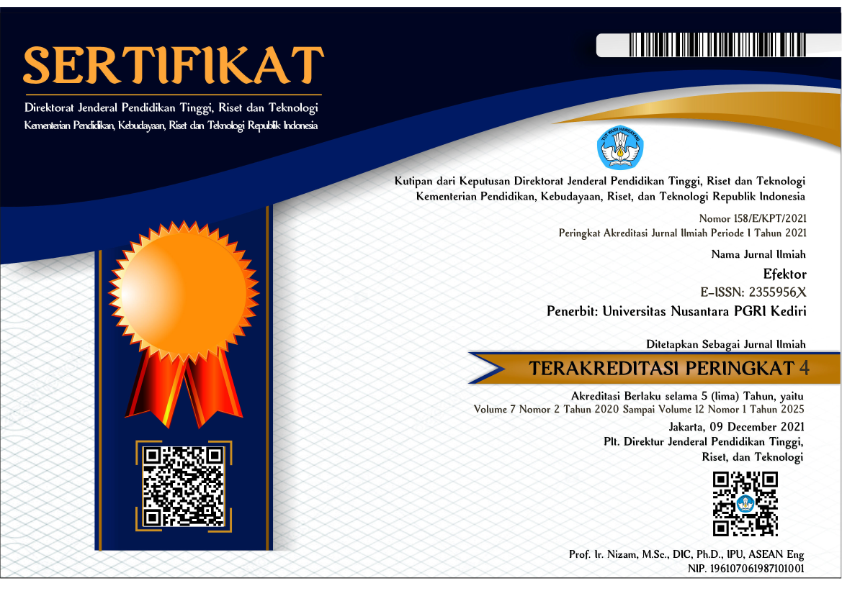Teacher Role Analysis In Developing Communication And Collaboration Capabilities On Elementary Education Level
DOI:
https://doi.org/10.29407/e.v6i1.12593Keywords:
collaboration and communication skills, 21st century teacher rolesAbstract
The purpose of this study was to analyze the role of the teacher in developing the ability to communicate and collaborate at the elementary school level in East Pringsewu. This study use a qualitative method by grounded theory design. Data analysis use interactive analysis by data reduction, data presentation, and data verification steps. The data credibility test uses techniques triangulation and source triangulation. The results of the study illustrated that teachers had a role that has not been effective in providing the ability to communicate and collaborate according to the demands of 21st century competence. The role of teachers in the 21st century has not been able to provide functional relationships that are able to construct, motivate, and track students' minds. The professional role of teachers that need to be developed can encourages learners to exchange ideas and provide verbal reinforcement related to their needs in carrying out communication and collaboration.
References
Bernie Trilling & Charles Fadel. (2009). 21 st. Century Skills Learning for Life in Our Times. San Fransisco: Wiley
Miles, M. B. & Huberman, A. M. (2012). Analisis Data Kualitatif: Buku Sumber Tentang Metode-Metode Baru. Jakarta: Universitas Indonesia Press.
Wahyudin. 2008. Pembelajaran dan Model-model Pembelajaran. Bandung: UPI
Ganratchakan Ninlawan. Factors which Affect Teachers’ Professional Development in Teaching Innovation and Educational Technology in the 21st Century under the Bureau of Special Education, Office of the Basic Education Commission. Procedia - Social and Behavioral Sciences 197 ( 2015 ) 1732 – 1735.
Castetter, William. B. (1996). The Human Research for Educational. Administration. New Jersey
Haag dan Keen. 1996. Information Technology: Tomorrow's Advantage Today. Hammond: Mcgraw-Hill College.
Martin.1999. Fundamental Information Analysis: An Extension and UK Evidence. British Accounting Review, Vol 31, No 3, September 1999
Roestiyah. 1994. Masalah Pengajaran Sebagai Suatu Sistem. Jakarta: Rineka Cipta.
Rudra P. Pradhan, Girijasankar Mallik, Tapan P. Bagchi. Information Communication Technology (ICT) Infrastructure And Economic Growth: A Causality Evinced By Cross-Country Panel Data. IIMB Management Review (2018) xx, 1–13
Rasojo Diat Lantip, Riyanto, Teknologi Informasi Pendidikan Yogyakarta : Gava Media.
Robert L. Mathis – John H. Jackson. 2006. Human Resource Management, edisi 10,. Jakarta : Salemba Empat.
Downloads
Published
Issue
Section
License
Authors who publish with this journal agree to the following terms:
- Copyright on any article is retained by the author(s).
- The author grants the journal, the right of first publication with the work simultaneously licensed under a Creative Commons Attribution License that allows others to share the work with an acknowledgment of the work’s authorship and initial publication in this journal.
- Authors are able to enter into separate, additional contractual arrangements for the non-exclusive distribution of the journal’s published version of the work (e.g., post it to an institutional repository or publish it in a book), with an acknowledgment of its initial publication in this journal.
- Authors are permitted and encouraged to post their work online (e.g., in institutional repositories or on their website) prior to and during the submission process, as it can lead to productive exchanges, as well as earlier and greater citation of published work.
- The article and any associated published material is distributed under the Creative Commons Attribution-ShareAlike 4.0 International License














